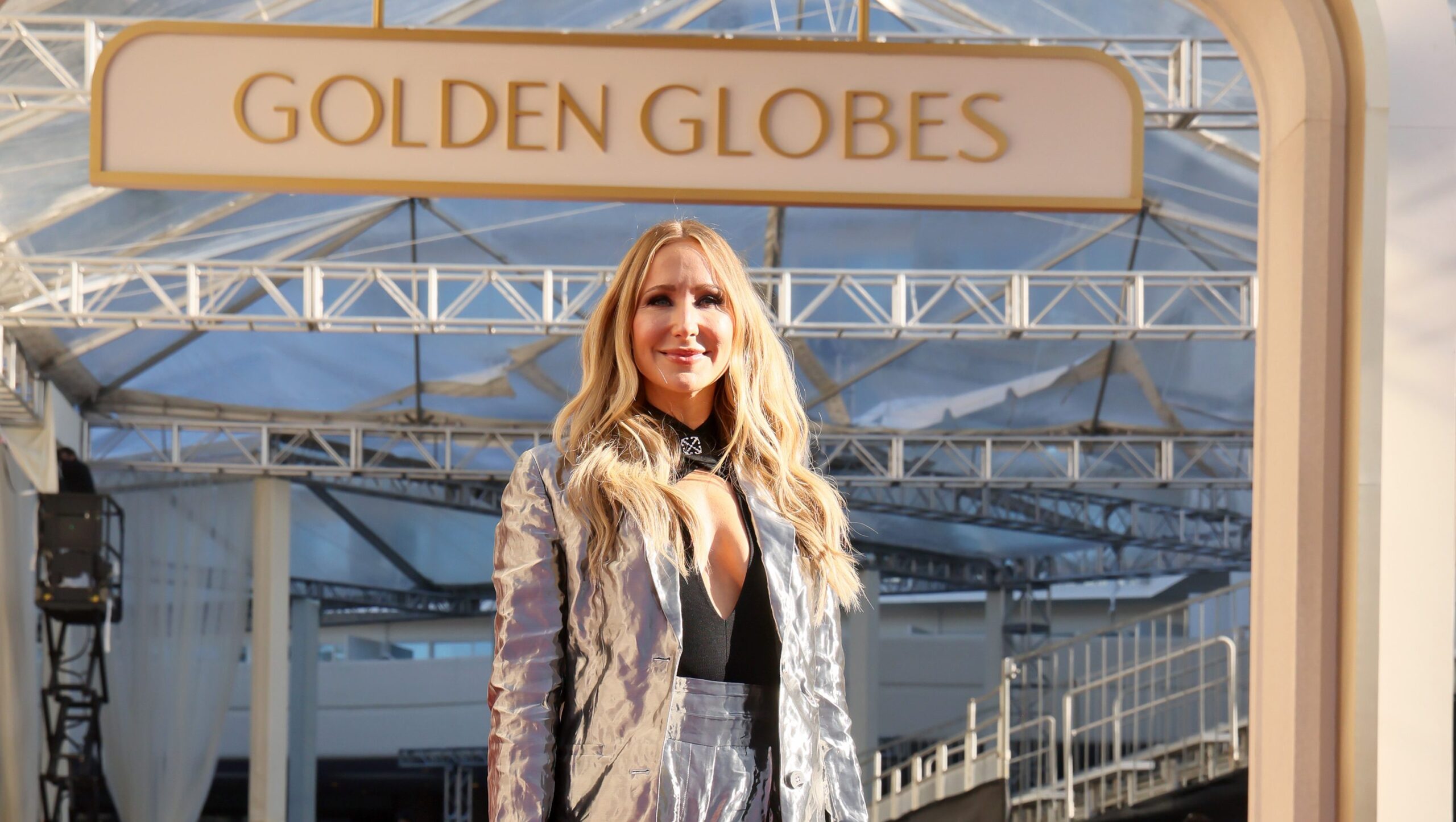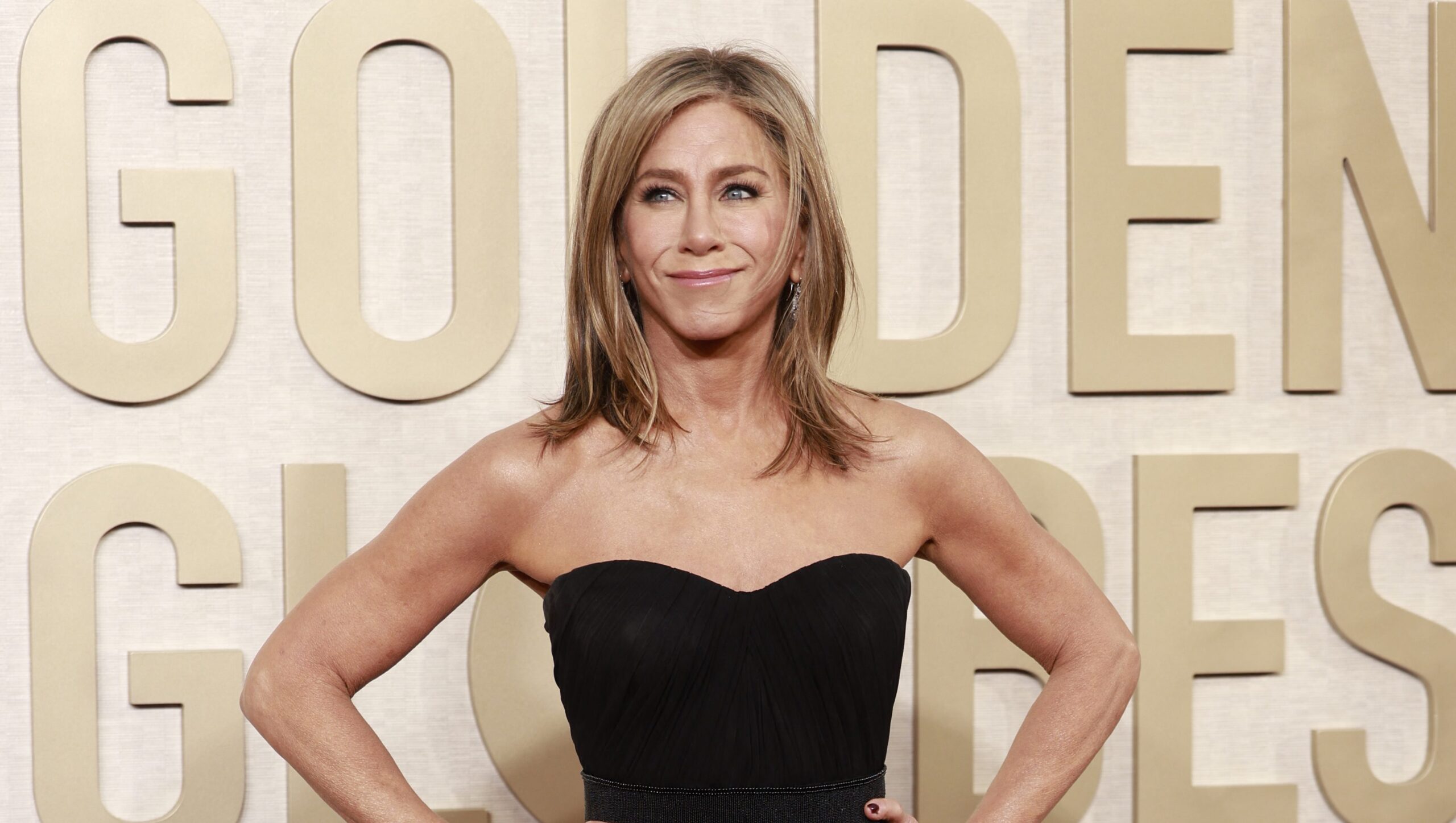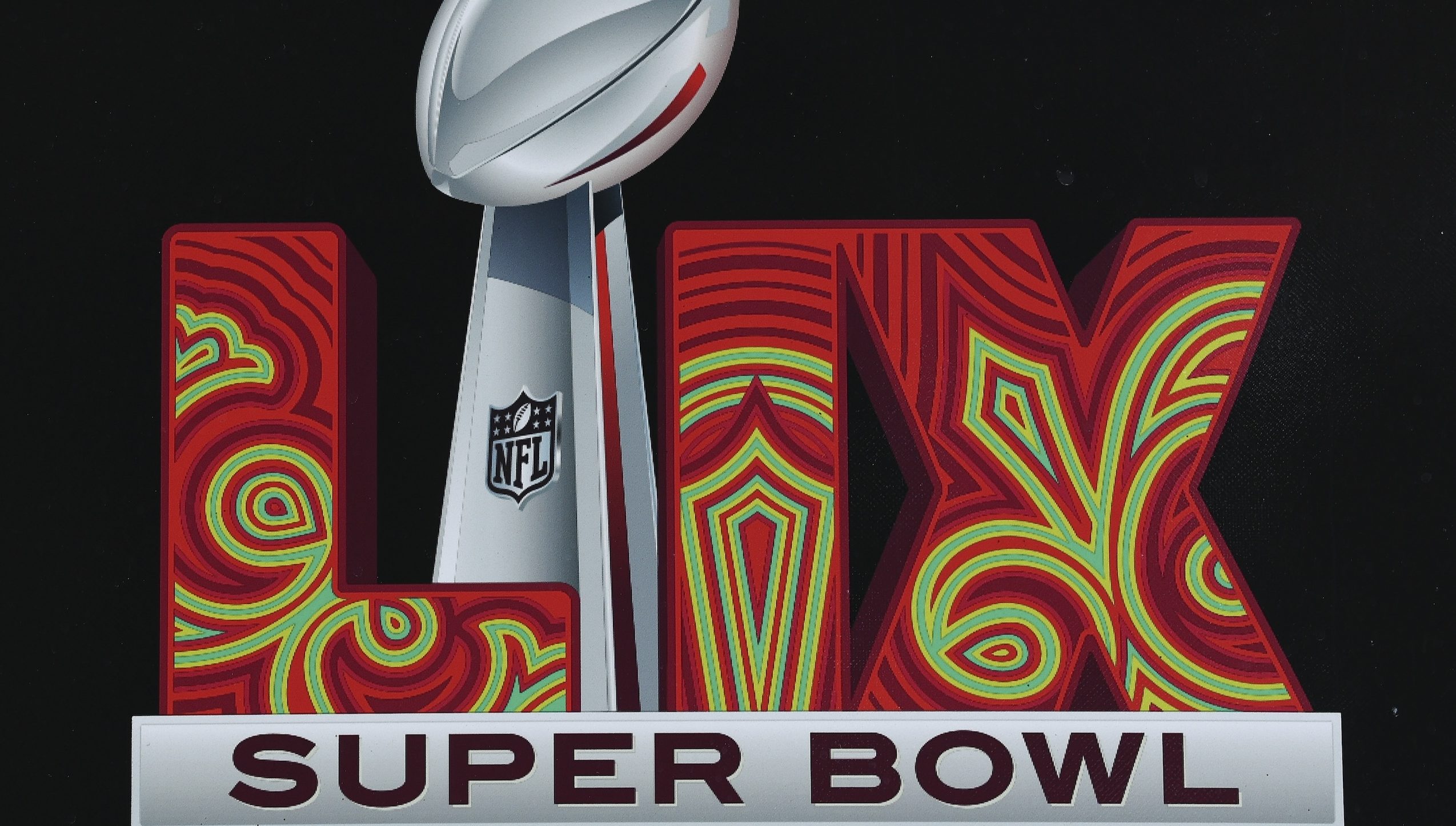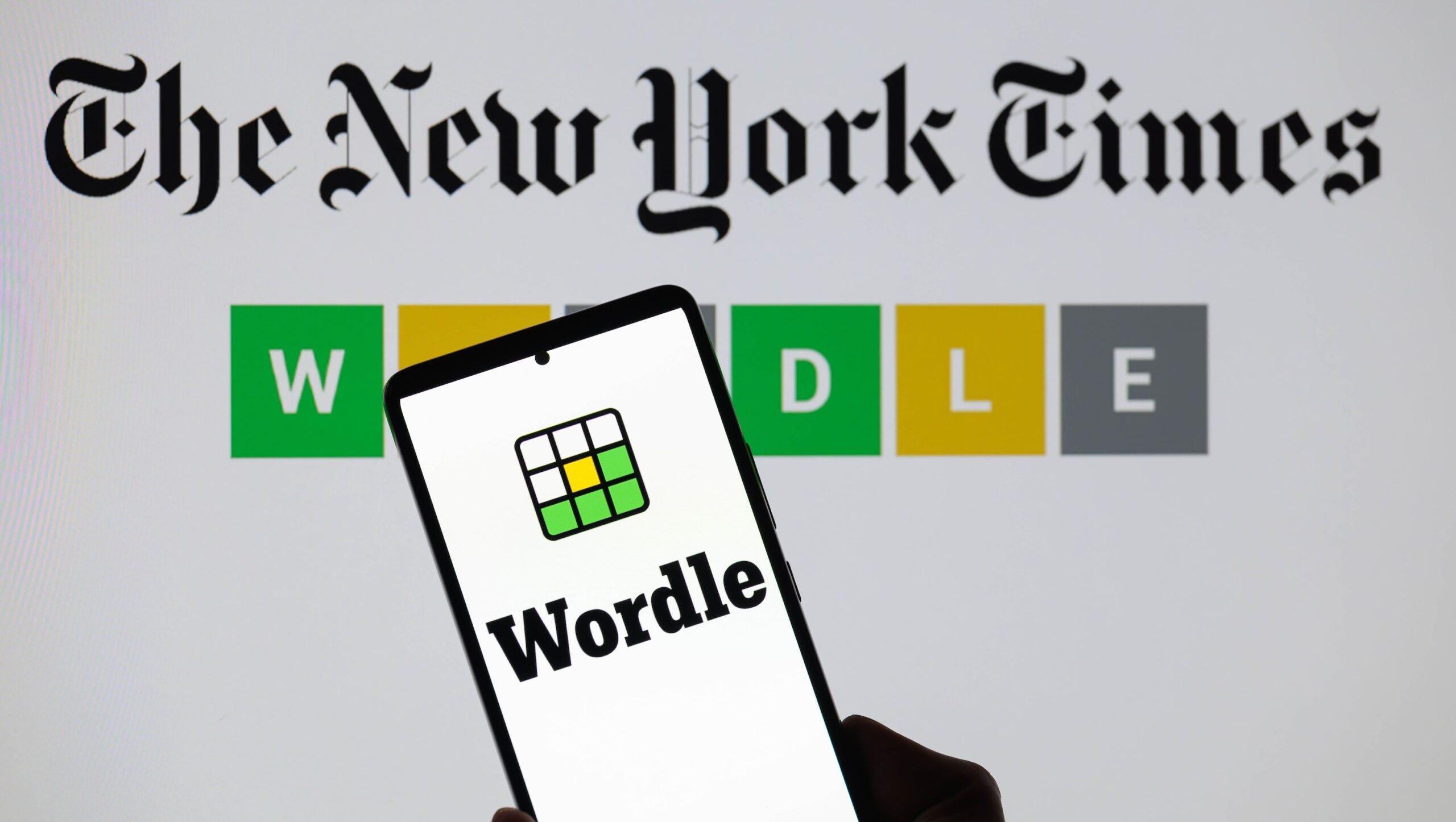Kobi Libii knew “The American Society of Magical Negroes” could be controversial. In spite of everything, the movie is a critique of the “magical negro,” the cinematic trope the place Black characters are constructed to help white protagonists with out inner lives of their very own.
Libii grew up in Gary, Ind. within the ’90s, throughout a run of these motion pictures. “A few of them had been seared in my mind,” he tells Selection, remembering a time when “The Legend of Bagger Vance” and “The Inexperienced Mile” had been lauded by critics and audiences alike, regardless that they reinforce these tropes. (Each motion pictures are not-so-indirectly referenced within the movie.) “It actually agitated me on the time however I didn’t have a language for that. I used to be simply informed that this was an incredible film regardless that Black persons are doing this.”
Now that he’s received a foothold in Hollywood, Libii is taking that kind of illustration to activity, asking audiences to take a deeper take a look at the way in which racism impacts our minds and the insidious qualities of racism that are harder to make tangible and visual.
“The subject material I’m enjoying with is admittedly delicate and uncooked, and other people have such sturdy, visceral emotions about it,” he explains. “I feel signifies that we’re pointed in the best route when it comes to what we needs to be speaking about. I’m genuinely excited for folks to convey that very same ardour and political conviction into what I feel is the extra refined and complex and nuanced dialog that the complete movie is.”
When Libii sits down for our interview in early January, he’s buzzing with power — a mixture of pleasure and anxiousness concerning the world premiere of the movie, in competitors on the Sundance Movie Pageant. It’s Libii’s function directorial debut, however as a veteran author, actor and comic, he doesn’t really feel very similar to a newcomer. Then there’s the truth that the movie already has distribution from Focus Options (which is able to launch the movie on March 22), so he’s not like the opposite filmmakers chasing a distributor. And the image has been locked since late summer season, so he’s not apprehensive about racing in opposition to the clock earlier than its debut on the Eccles Theater on Friday afternoon.
What Libii is eagerly anticipating, although, is the response from the stay viewers. “I really like the viewers response, particularly as a result of it’s a comedy, so folks giving different folks permission to snigger – particularly about a few of the tricker stuff — is one thing I’m wanting ahead to,” he says.
The final time Libii was on the competition was in 2019, whereas collaborating within the Sundance Institute’s screenwriting and directing lab. He was workshopping “The American Society of Magical Negroes” and linked with Justice Smith, who would go on to star within the movie as Aren, a recruit to a secret society magical Black individuals who “dedicate their lives to a reason for utmost significance.” The trigger: making certain that white persons are snug.
Libii started engaged on this concept in 2016, imagining it first as a two-and-a-half minute comedy sketch about this secret society. However as he started writing, Libii realized he was engaged on one thing greater — and understanding one thing deeper that he’d internalized way back as a biracial particular person.
“I got here up for air a few hours into engaged on it realized that basically what I used to be writing about was a really specific protection mechanism that I used to be taught as a Black man rising up in America, about learn how to preserve myself secure, and learn how to navigate systemic racism. And that individual protection mechanism was ensuring that the highly effective white folks round me had been snug.”
The instance he makes use of to make that concept tangible for folks is the direct dialog that his father had with him about learn how to act round cops, recognized for a lot of Black folks as “The Speak.”
Trying again, Libii distinctly remembers the sense of unease that his father (who’s Black; Libii’s mom is white) had when it got here time for him to start out driving as a youngster, which regularly necessitates having this dialog. His father informed him: “It’s not about your delight. It’s not about you wanting cool or feeling good about your self. It’s about you actually staying alive in that state of affairs, so that you simply be in your greatest conduct.”
However what occurred to Libii – and plenty of Black folks, together with this author — is that he “overlearned that lesson when it comes to the way in which he moved by means of the world and associated to highly effective white folks.
“What I noticed writing about this trope and writing concerning the society and depicting a bunch of Black those that, due to racism, had been hyper-focued on serving white folks, I discovered a hassle resonance within the classes I’d realized about learn how to navigate America,” Libii says. “That’s a very difficult — and for me, a really embarrassing — dialog for folks to wade into. And it provokes very sturdy emotions. Appropriately.”
And from the second “The American Society of Magical Negroes” was introduced, the web discourse started. First got here the academic interval the place cinephiles defined to on a regular basis moviegoers that this was not a film a couple of Black Harry Potter however as a substitute referred to the trope popularized in 2001 by Spike Lee in reference to motion pictures stereotype their Black characters into roles that purely serve the white leads. Then got here the trailer, which infected the Fox Information crowd, sparking anger for saying “white persons are probably the most harmful animal.”
In context, a veteran member of the society named Roger (David Alan Grier) is explaining the group’s operate to Aren. “White folks feeling uncomfortable preambles plenty of dangerous stuff for us, which is why we battle white discomfort day by day,” Roger explains as he and Aren gaze upon a distressed white police officer. “The happier they’re, the safer we’re.”
It’s a robust assertion for a springtime comedy — and he’s taking the response to it in stride. “It’s blended,” Libii says, admitting that he’s undoubtedly been stunned by the sheer quantity of suggestions to the challenge.
“We’re a small impartial movie, and, frankly, I’m simply excited persons are speaking about it,” Libii says. “Lots of my friends’ movies land with close to silence, so the truth that persons are paying a lot consideration to this little piece that we made is a really nice shock.”
It’s additionally an indication of the instances {that a} film like “The American Society of Magical Negroes” is getting a large launch from a significant studio.
“What number of years in the past does this movie not get made?” Libii wonders. “Undoubtedly 10. In all probability 5. I really feel like terribly lucky to be residing on this time the place filmmakers may inform these complicated tales.”
He explains: “There’s such an urge for food and a vibrant, passionate viewers for Black tales about race and racism. And a passionate viewers for Black tales don’t have anything to do with that. I’m simply excited for a hopeful future day, when there are such a lot of of us telling tales that that I don’t have that sense of shortage. The place I don’t really feel like there’s solely a few these that get informed yearly. That’s the fantasy and hopefully we’ll get there.”
Right here, Libii addresses a few of the movie’s most controversial components and why, upon additional inspection, they won’t be so relatable than you’d assume.
Justice workshopped this script with you in the course of the Sundance labs. What did you two bond over?
He simply actually understood the protection mechanism. Being pleasant, making an attempt to assimilate — these these methods and the way seductive they are often, even when they’re not finally efficient or constructive for us. As a writer-director, once you meet somebody who like immediately will get the character, you’re like, “Oh, nice, that is simply going to be a lot simpler.” You don’t should get on the identical web page; you may simply discover by new ranges to it.
The character of Aren, and Justice by proxy, primarily act as an avatar on your expertise. There have been criticisms from potential viewers members about you making this film as a biracial creator. What has that have been like?
It’s a type of issues the place you get the great with the dangerous. There’s an amazing quantity of privilege I’ve due to my pores and skin. As a result of I had a white mom who may go into my faculty, and yell on the steering counselors once they did racist shit to me. There’s a literal privilege that I’ve benefited from, and my friends that don’t have that privilege haven’t. And likewise it sucks to have stuff be assumed about you due to who you might be.
One of many ironies is that this piece is about proximity to whiteness, and what that does to you, and the benefits and risks of that. So I’m making an attempt to jot down and make inform tales which might be actually extremely particular and genuine to my expertise, and a part of that’s making an attempt to replicate the privilege that I’ve by being light-skinned and being biracial.
It’s a part of why I made the selection to solid Justice particularly, to replicate that I do know my relationship to whiteness and white folks is completely different. It’s actually necessary to be exact and never fake that my expertise shifting by means of the world is identical as a Black one that is a unique shade than I’m. Mine may be very a lot a Black expertise, even when it’s a unique form of Black expertise, however I need to be actually genuine about that and I hope folks can respect that.
This film intends to be each a essential racial satire and in addition a love story. As you began writing and evolving this piece, how did you weave these two narratives collectively?
There are two solutions to that. One is that it’s partially about protagonism and what it appears to be like like in motion pictures. The factor about protagonism for cis male characters is that it’s about “getting the woman.” That could be a actually potent image of centrality and protagonism in film historical past. That’s the form of like heavy writer reply.
The center and soul actual motive I did it’s that it’s a film about being decreased and being seen as lower than you might be. To me, the other of that’s being seen by somebody who loves you. Due to what it means to be magical negro, what it means to stay in America, seen as a stereotype, thinly-sliced, considered a bit of fraction of your self — when somebody who actually loves you, they see all of you. They see particulars. To really feel seen by a associate is likely one of the most stunning experiences.
After a film that’s a lot about being decreased, to really feel seen and held is admittedly constructive and nourishing going ahead, nevertheless it additionally clarifies how troubling that white gaze is. While you put the thought of what it’s like when an individual actually sees and understands you proper subsequent to being stereotyped, it sharpens the critique of that reductive gaze.
Let’s discuss An-Li Bogan, who performs Lizzie, who’s a relative newcomer. How did you discover her?
She auditioned and was actually very good. Everytime you’re casting a love story, it’s additionally about chemistry and when she sat down with Justice, it was like, “Oh, I imagine these two characters are in love.
I needed that character to be a non-Black girl of colour. Black love tales are so stunning and so necessary and I actually hope I get to inform a narrative that facilities one as a result of I imagine that there’s actually essential political work in that form of illustration.
The work that I used to be making an attempt to do with this movie, partially, was to fairly intentionally be higher than magical Negro authors. Their predominant failing was probably not interested by the expertise of different marginalized folks. A white author shouldn’t be actually pondering by means of what it means to be a Black particular person; he’s simply interested by his personal relationship to the thought of Blackness.
It needed to not simply assume by means of what my expertise as a Black particular person had been, but in addition concerning the completely different, however associated ways in which different folks of colour, particularly ladies of colour, are impacted by systemic racism too. And to attempt to have an empathy for these associated however completely different struggles in a manner that the magical Negro authors didn’t. That was a alternative in help of Black folks within the Black group as a result of now we have to be working collectively as a result of the systemic issues we’re up in opposition to are the identical — even when the way in which Black folks undergo beneath white supremacy is completely different than the way in which that an Asian American girl suffers beneath white supremacy. That intersectional coalition of us preventing that’s a part of what my ambition was.
I additionally need to discuss colorism actually explicitly. There’s an actual worth of portraying darker-skinned folks of all races, however I intentionally solid fairer skinned folks of colour in Justice and An-Li for a motive, which is that this film is concerning the false promise of assimilation. Casting folks that ought to be capable to quote-unquote “assimilate simpler” and have that proximity to whiteness sharpens the critique of assimilation, once you watch them not be capable to. That’s to say, even somebody as light-skinned as Justice or a lady of colour like An-Li can’t assimilate on this tradition. I feel once you see that, there’s an influence to it and it sharpens the critique of this as a survival technique.
To place it in blunt phrases: complying with the officer’s orders won’t preserve you secure. And that’s an argument you continue to hear from sure segments of America. There’s a suggestion that if we simply behaved in another way, if we simply assimilated tougher, all of those issues would go away for us. I simply assume that could be a harmful lie.
So, exhibiting folks of colour with the best proximity to whiteness, nonetheless not being allowed into the complete advantages of white privilege was a deliberate alternative.
That argument doesn’t simply come from white folks; it comes from folks of colour as properly.
There’s that hope in some conservative corners of our group, like, “Oh, possibly we will preserve ourselves secure with a survival methods like this.” Clearly, I don’t agree with that, nevertheless it’s seductive, and I perceive that.
That’s why the discourse concerning the film inside our group is especially fascinating. Do you hope to assuage Black folks’s fears once they watch the movie?
I made a film about “magical negroes.” I even have a deep suspicion of Hollywood. I actually, actually perceive being a Black particular person and seeing a trailer for a movie and being deeply suspicious that there’s some extra racist bullshit is coming down the pike. After all, it’s cheap to assume that some horrible cartoon of the studio govt is doing extra horrible, racist issues and slapping your face on it.
A part of what you hear on this dialog is each absolutely the deep hope from the Black group that there will probably be good Black artwork — there’s an actual craving for that and a palpable frustration and anger when what looks like very, the only a few possibilities for Black artwork to be made at a excessive degree aren’t dealt with as thoughtfully as they might be.
There’s an actual ardour and an urge for food for that, and an actual suspicion that it’s going to be mishandled, so I actually do get having an eyebrow raised.
How has this challenge formed this model of Kobe?
A lot of this piece is concerning the request to be actually seen and heard. That’s one of the nourishing issues when it occurs to you, and it’s not as straightforward to do for different folks as I want to assume it’s. So I really feel just like the form of pure extension of this piece in some methods is to attempt to be think about folks extra intently and extra empathetically round me and hope that hope that I can try this and that the America can form of more and more try this to me in return.
Going into the Sundance screening, is there the rest you need folks to know concerning the movie?
My nice hope is that individuals simply sit down and watch it — versus what they anticipated it to be or what they hoped it will be or what they’re afraid it’s going to be — and simply see what it’s. Then assume no matter you concentrate on it and really feel about it. I imagine there’s so much to get out of it.
The post The American Society of Magical Negroes Director Talks Controversy appeared first on Allcelbrities.








